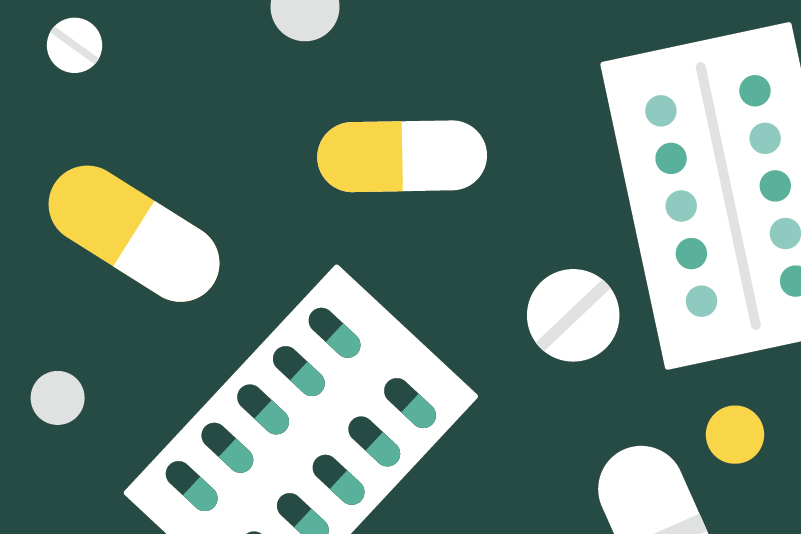#117 Generic Versus Brand Name: The other drug war

Reading Tools for Practice Article can earn you MainPro+ Credits
Join NowAlready a CFPCLearn Member? Log in
- Regulators require 90% confidence intervals (CI) for the maximum peak concentration (Cmax) and total drug exposure over time (AUC) of generic drug be within limits of 0.80-1.25.
- This means the absolute differences in bioequivalence must be ≤~5-7%.
- Between 1996-2007, 2070 single-dose bioequivalence studies showed the average difference in Cmax and AUC was 4.35% and 3.56%, respectively.
- 98% of studies showed AUC of generic and innovator products’ differed by <10%.
- Generic and brand name levothyroxine have been shown to be bioequivalent.2
- One study found that of 42 randomly selected brand-generic drug comparisons, 98% met AUC criteria and 88% met Cmax criteria for bioequivalence.3
- Two systematic reviews [38-74 randomized control trials (RCTS)] of cardiovascular medications including anti-hypertensives, statins, anti-platelets, anticoagulants:4,5
- Both showed no difference in clinical outcomes.
- The largest and most recent SR:5
- Composite of soft outcomes (e.g. systolic blood pressure, LDL): no statistical difference.
- Major adverse cardiovascular events (MACE) or death (3 RCTs): no statistical difference.
- Adverse effects:
- Mild/moderate: no difference.
- Serious: no difference.
- Systematic review of warfarin:6
- Five trials (higher level evidence): No statistically significant difference in INR or dosage changes required.
- Six observational studies (lower level evidence): Inconsistent results at higher risk of bias.
- Systematic review of clopidogrel (3 studies, mixed design) 7. For RCT data, no differences observed for:
- MACE: 5% versus 4% generic, no statistical difference.
- Bleeding: 2% versus 1%, no statistical difference.
- Withdrawal: 4% versus 7%, no statistical difference.
- Systematic review of antiepileptic drugs (7 RCT, 204 patients)8:
- Uncontrolled seizures: no difference.
- Of 43 editorials on generic medication issues, 23 (53%) expressed a negative view of generic substitution,4 while only 8% of trials found any differences in any outcomes.4
- If there were important clinical differences between generic and brand name medications, companies would do studies to prove brand name superiority and prevent losing millions of dollars from generic substitution.
- In fact, one company tried to suppress data demonstrating equivalence of its product and related generics.9
- Brand name and generic medications may contain different inactive components (fillers and binders) and may look different.















this shouldn’t even be a thing